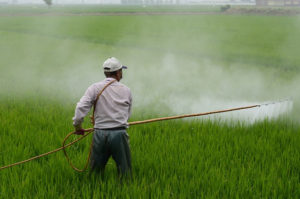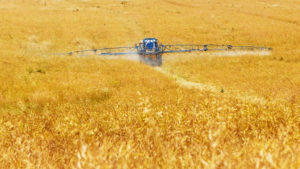 $289 million dollars. I’ll say it again, two hundred, eighty-nine million dollars. This is what one man was awarded from a lawsuit he won against Monsanto. Although, he may only see $20 million of it due to taxes and fees, that is neither here nor there. It’s a very small consolation for his life since he’s dealing with terminal cancer. Thanks to him and this case, it was enough to make people start to take notice of Monsanto’s RoundUp chemical weed spray. People are starting to see the word “glyphosate”, understand that it is causing a problem, and know it’s being found in many wheat products in varying degrees.
$289 million dollars. I’ll say it again, two hundred, eighty-nine million dollars. This is what one man was awarded from a lawsuit he won against Monsanto. Although, he may only see $20 million of it due to taxes and fees, that is neither here nor there. It’s a very small consolation for his life since he’s dealing with terminal cancer. Thanks to him and this case, it was enough to make people start to take notice of Monsanto’s RoundUp chemical weed spray. People are starting to see the word “glyphosate”, understand that it is causing a problem, and know it’s being found in many wheat products in varying degrees.
Why is glyphosate being found in wheat & oat products?
This chemical is being found in many wheat products and cereals because farmers use it to harvest wheat crops. This practice is called “desiccating”. In order for wheat to be harvested, it has to dry out. In some places, it’s too wet to do so. When the farmer sprays their wheat crop with products containing glyphosate, it kills the wheat, the crop dies evenly, and allows for a quicker drying time. This way, all the wheat can be harvested at once. It is a very useful tool for the farmer, but not so much, as we are seeing, for the consumer.

The thing is, we can’t place too much blame on our farmers. For years, this practice and chemical has been promoted to them as being safe and not harmful. It was a way for them to make a living through profiting off of the crop they grew. This promotion is called propaganda and propaganda wasn’t always a bad word. Edward Bernays, the father of propaganda, often explained that it’s what made business and people come together. But, sometimes this practice of propaganda can backfire and things go terribly wrong. Think about it, not too long ago, doctors promoted smoking cigarettes and we know where that has lead us.
What can you do about it?
First, understand that if you are buying conventional wheat-based products, they will contain at least trace amounts of glyphosate. Do your research, to see which brands are appropriate for your family. You can start with this list here.
In our home, we have two philosophies: “If you can, grow your own” and “Don’t buy it, make it”. But in this case, making it is going to take some work. Not everyone can grow their own wheat or oats, but you can make your own wheat and oat based products. So, if this news bothers you, seek out organically grown oats or organically grown wheat without glyphosate. Below, you will find two links to recipes we like to use to make our own homemade granola and oat based pancakes.
Take care!